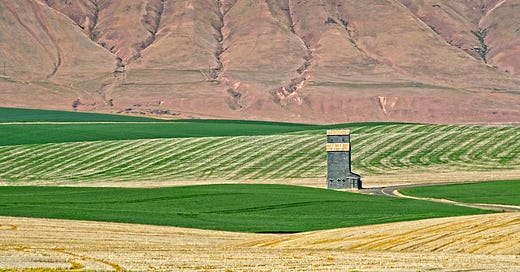
Editor’s Note
First, and let me say this clearly, Oregon is not a wimp. Oregon is not a political football. This state is not a commodity to be traded off or bartered away by any group of citizens or any group elected officials. This state is a legacy that all [] Oregonians hold in trust and the time has come to take that obligation to heart.
Governor Barbara Roberts voiced that powerful call to action in 1995. Since then, Oregon has sadly been punted around from time to time.
Most recently, we saw Portland become a national litmus test—our Rose City turned into an inkblot. A few years prior, the occupation of the Malheur National Wildlife Refuge placed Oregon in the crosshairs of political pundits. Of course, there’s surely a slew of other examples of when Oregon was tossed around by others.
How can we “control the narrative,” so to speak, around Oregon?
According to Governor Roberts, Oregonians need to recognize their role in shaping the state’s legacy and to take that obligation to heart.
What’s that look like in pratice?
That’s my challenge to the contributors on this blog as well as this community in the weeks and months ahead.
Will you accept the challenge? Please send me your thoughts on what it means to take our obligation to advance the state’s legacy, and what that legacy was, is, and will be.
To a better Oregon,
Kevin
Welcome to new contributors
Nitin Rai
Help us connect Oregonians
Friends don’t let friends miss The Oregon Way. Share this with some buddies!
Send potential contributors and feedback to Kevin (kfraz@berkeley.edu).
Now to the posts!

To read
What’s it mean to be needed? And how can we foster a sense of being needed among Oregonians? Jessica Gomez offers her perspective and first post.
What saved me in the end was the realization that there were other people in my life who demanded more from me as a person. People like my younger sisters and brother, who depended on me to stabilize our dysfunctional household. People like my grandmother who expected me to work hard and get an education. And, people like my aunt who needed help caring for her four-month-old baby girl while she underwent radiation therapy. In short, I was needed and therefore could not allow myself to fail.
Don’t miss Chapter 9 of Kevin Frazier’s book, Rediscovering the Oregon Way.
Elected officials themselves have abandoned the norms that previously brought legislators together at the local bar as well as on tricky policy matters. Instead, officials seem more keen to take drastic, uncompromising, and performative actions that inflame passions while quashing any chance of achieving compromise. Democratic processes, blatantly flawed but somehow immune to change, have allowed the denigration of norms to continue while forcing social institutions to pick favorites to try to perpetuate their perilous existence.
Rich Wandschneider’s reflections on “the other Oregon.”
Now I know that there are differences between wet-side and dry-side, rural and urban-suburban. I know that I was seeing the last of the Democrats who remembered FDR, and that the rise of the environmental movement and Ronald Reagan’s anti-government government would flip Oregon’s parties. Maybe there have long been two Oregons—or three or more—and the terms of difference shift with the times. I know now about the “State of Jefferson” in the other corner of Oregon, and have read our history of Indian removal and black exclusion. I’ve lived through the timber wars of the 1980s.
What do Oregonians hope for? Kevin Frazier discusses a recent Oregon Values and Beliefs Center survey:
Oregonians simply want to live in a state where no one slips through the cracks, and everyone can actually afford to call the state home. That’s the upshot of a recent survey conducted by the Oregon Values and Beliefs Center.
When asked what goals the state should prioritize for the future, respondents voiced the strongest support for becoming the most affordable state to live (52% of respondents ranking this goal in their top three) as well as the state with the lowest poverty rate (46%).
To look forward to
John Tapogna lending his two cents (worth a nickel).
Melissa Cribbin penning her first contribution.
Sarah White reflecting on the last few weeks in Silverton.
To answer
Tweet at @the_oregon_way to win & tell us who said this:
"We must stand up to those who attempt to divide Oregonians and tell them they are damaging our state and we are not going to take it anymore."



